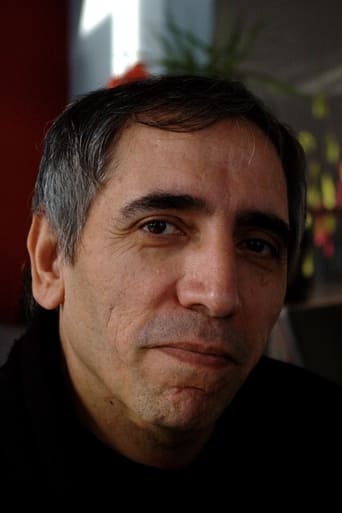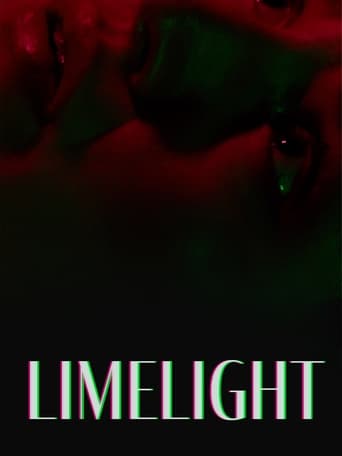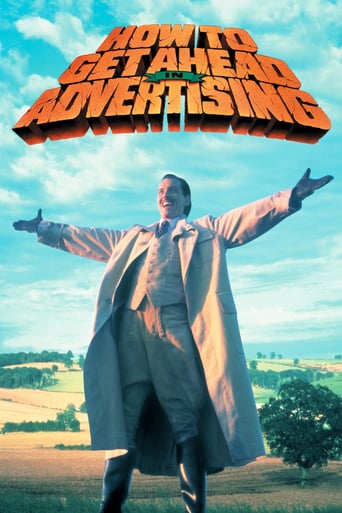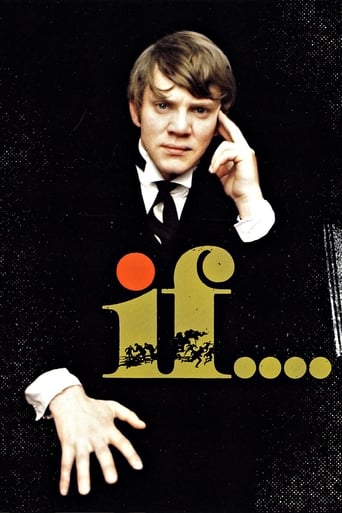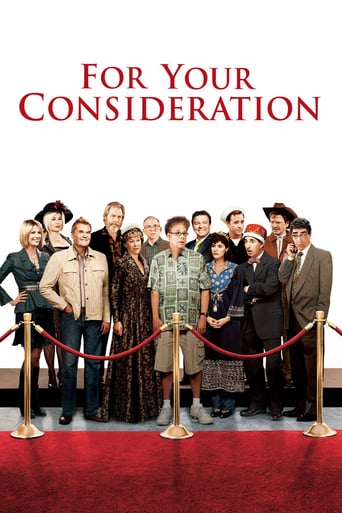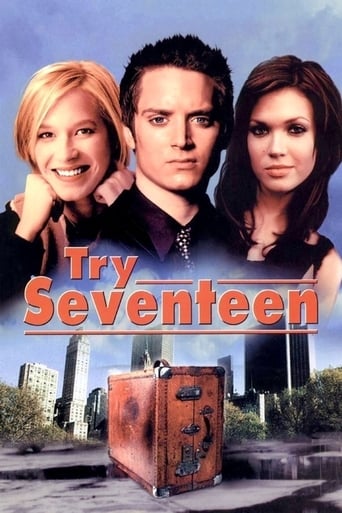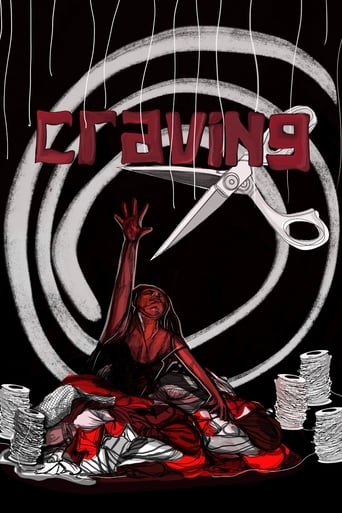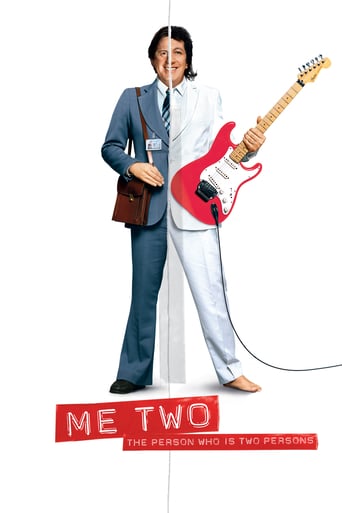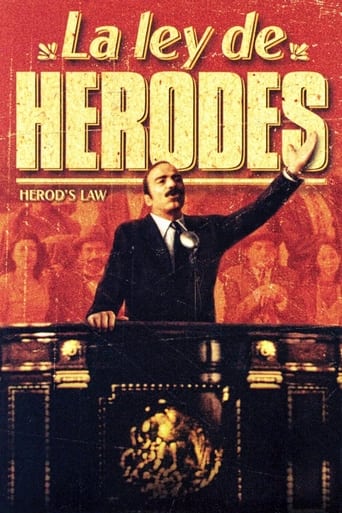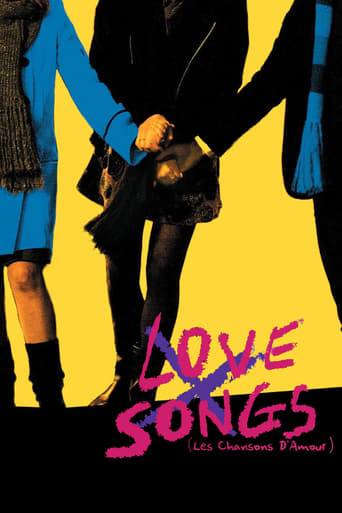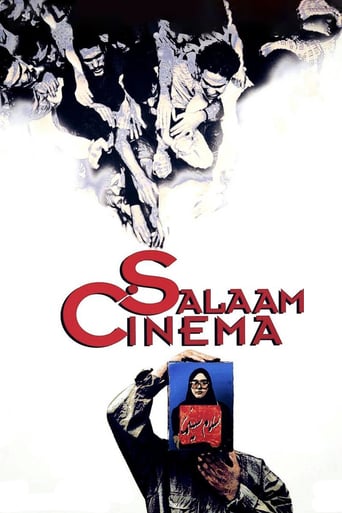
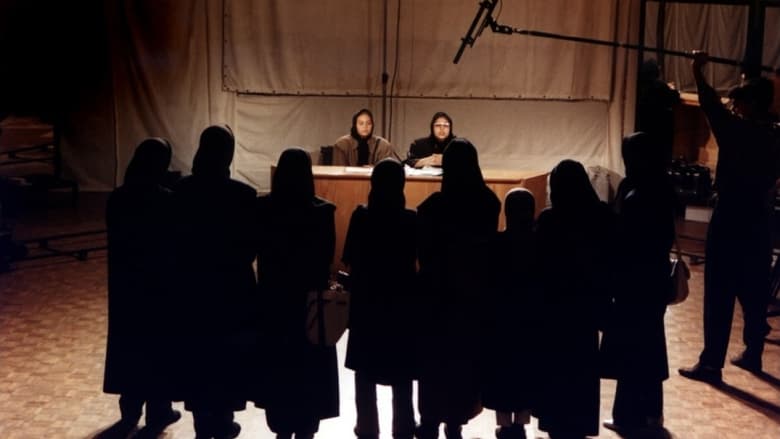
Salaam Cinema (1995)
Makhmalbaf puts an advertisement in the papers calling for an open casting for his next movie. However when hundreds of people show up, he decides to make a movie about the casting and the screen tests of the would-be actors.
Watch Trailer
Cast


Similar titles
Reviews
I think this is a new genre that they're all sort of working their way through it and haven't got all the kinks worked out yet but it's a genre that works for me.
A film with more than the usual spoiler issues. Talking about it in any detail feels akin to handing you a gift-wrapped present and saying, "I hope you like it -- It's a thriller about a diabolical secret experiment."
A terrific literary drama and character piece that shows how the process of creating art can be seen differently by those doing it and those looking at it from the outside.
This is one of the best movies I’ve seen in a very long time. You have to go and see this on the big screen.
It is through the dual prism of 'affect' and 'effect' that viewers would be compelled to watch Iranian director Mohsen Makhmalbaf's film 'Salaam Cinema'. It is an important film which tries to ascertain how does cinema affect the lives of ordinary human beings ? It also tries valiantly to measure the effects of cinema on human beings. In 'Salaam Cinema' people are able to laugh at will but they are absolutely clueless when it is their turn to shed some tears. This is a very important proof for the preference audiences have for comedy films. It appears as if nobody comes to cinema to cry but enjoys darkness of a cinema hall to have a good laugh. Through his absolute control the direction process, director Makhmalbaf has been able to dissolve the ubiquitous boundaries between documentary cinema and traditional narrative cinema. He is also fantastic in his role as a film director on set who is similar to a dictator who can order anybody to do anything. Using cinema to comment upon cinema is an excellent strategy to comment upon the impact of cinema. The extent to which Hollywood cinema is popular all over the world even in Iran is revealed through scenes in which young Iranian men state Paul Newman's name without even watching any of his films. In this film, everybody seems to profess love for cinema as it is viewed as a ticket to prosperity. Lastly, cinema is a great social force for many ordinary citizens. However, it was evident in full force in 'Salaam Cinema' as it also transformed itself as a problem solver when a young girl approaches director Mohsen Makhmalbaf to give her a role which would enable her to get a visa in order to marry her boy friend who has settled abroad.
It has one of the best opening scenes: is it a street riot? an anti-American demonstration? where is the sale? But soon the director does what he likes best: manipulate the hell out of his actors, and us, as if we are puppets. The eagerness of those people to appear in his movie is anywhere between touching to awful (hey folks, it's only a movie). But maybe it says more about the importance of film in Iranian culture. I saw it three times and was equally engaged every time.
A remarkable small film from Iran. A director holds a casting call for 100 actors to appear in his next film. 5000 people show up, some desperate, some bewildered, and some self-absorbed. The director calls in each person, sometimes in large groups, and asks them all why they came. He then requests that they act, some he even demands to laugh or cry within 10 seconds because that's what actors can do, indeed must do. Alternately cruel and cajoling he is relentless in his pursuit of the truth of acting. 'Can they act' enfolds within it, 'why act'?Anyone interested in the process of filmmaking, of acting, in documentaries, and in a open-faced discussion of what art is and what artistic responsibility is will find much to laugh, cry, and think about in this film. The consequences of the director's questions and the veracity of the answers will surprise you. Somewhere amongst playing God, the director discovers a genuine democracy.


